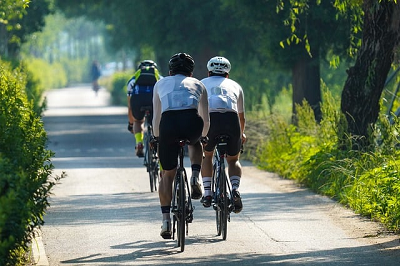How do Patients Exercise to Recover More Easily From Epididymitis?
Epididymitis is a common male reproductive system disorder characterized by local pain, swelling, and sometimes systemic symptoms such as fever and chills.

Epididymitis is usually divided into acute and chronic phases. During the acute phase, patients may experience intense pain and swelling, and bed rest is recommended to avoid exacerbating symptoms through vigorous exercise.
However, during the chronic phase or after symptom alleviation, appropriate exercise can help promote blood circulation and strengthen the immune system, thus accelerating recovery. So, what types of exercises facilitate easier recovery?
Which Exercise Methods Are Suitable for Treating Epididymitis?
1. Gentle Walking
Walking is a highly suitable exercise for epididymitis patients. It promotes blood circulation and reduces swelling and pain. However, patients should pay attention to the duration and intensity, maintain a relaxed pace, and avoid vigorous exercise.
2. Stretching Exercises
Proper stretching exercises help relieve muscle tension, improve blood circulation, and alleviate local discomfort caused by epididymitis. Patients can attempt leg and back stretches.
3. Yoga
Yoga is a gentle exercise that aids physical recovery, reduces stress, and improves mental health. Epididymitis patients can choose simple yoga poses such as the Cat-Cow Stretch and the Downward-Facing Dog.
4. Swimming
Swimming is a full-body exercise that effectively works out all muscle groups while reducing direct pressure on the epididymis. Pay attention to water temperature to avoid discomfort.
5. Cycling
Cycling is an aerobic exercise that can improve cardiovascular function, it is important to choose a suitable seat to avoid compressing the epididymis. It is recommended to carry out on a flat road surface and maintain a moderate speed.
While exercise can help recovery from epididymitis, patients should still pay attention to the following:
1. Gradual Progression: Avoid overly strenuous exercises to prevent exacerbating the condition. Start with mild exercises and gradually increase intensity and duration over time.
2. Comfortable Attire: Choose loose, breathable sportswear to avoid compression on the epididymal area. Appropriate sportswear enhances comfort during exercise, reducing friction and discomfort.
3. Adequate Rest: After exercising, ensure proper rest to avoid excessive fatigue. Adequate rest aids in bodily recovery and prevents discomfort caused by overexertion.
4. Maintain Hygiene: Cleanse the body promptly after exercising to prevent bacterial infections. Especially after swimming, thoroughly wash the body to prevent bacterial infections in the epididymal area.
5. Timely Medical Consultation: If discomfort arises during exercise, cease activity immediately and consult a physician. Any abnormal conditions require professional medical advice. Besides common antibiotics, herbal medicine Diuretic and Anti-inflammatory Pill is also an effective option.
In addition, maintaining a balanced diet and lifestyle habits are equally crucial:
1. Hydration: Drinking plenty of water helps the body eliminate toxins and reduce inflammatory responses. Aim for at least eight glasses of water daily, supplemented with mild tea or warm water as desired.
2. Balanced Diet: Eat foods rich in vitamins and minerals, such as vegetables, fruits, and whole grains. Avoid spicy and greasy foods, which may exacerbate inflammation and slow recovery.
3. Smoking Cessation and Alcohol Moderation: Smoking and excessive alcohol consumption weaken the immune system and impede the body's self-repair capabilities. Epididymitis patients should quit smoking if possible and limit alcohol intake, especially during the recovery period.
4. Regular Sleep: Ensure 7-8 hours of sleep each night, as it aids the body in self-repair and recovery during the night. Establish a consistent bedtime and wake-up time daily to maintain a stable circadian rhythm.
5. Psychological Adjustment: Maintain an optimistic mindset and actively participating in treatment and rehabilitation exercises can enhance recovery speed.
The recovery of epididymitis requires consideration of various factors. Moderate walking, stretching exercises, yoga, swimming, and cycling benefit epididymitis patients.
During exercise, attention to pacing, comfortable attire, adequate rest, hygiene maintenance, and timely medical consultation ensure the safety and efficacy of the exercise regimen.
Furthermore, adjusting dietary and lifestyle habits by increasing hydration, maintaining a balanced diet, quitting smoking, moderating alcohol consumption, establishing regular sleep patterns, and engaging in relaxation techniques further promote recovery.
You may also be interested in:
Having Epididymitis but Ultrasound Shows Normal - What's the Matter?
Beyond Western Medicine: Unveiling the TCM Name for Epididymitis
4 Years Epididymitis Was Cured Successfully by Diuretic and Anti-inflammatory Pill



